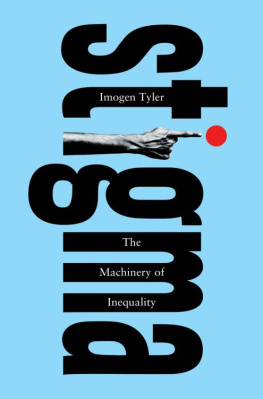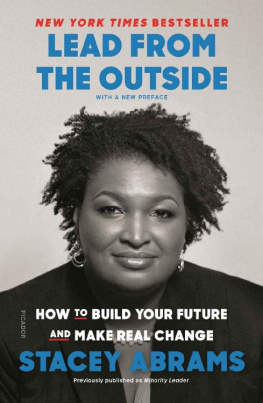Stacey Hannem - Stigma Revisited
Here you can read online Stacey Hannem - Stigma Revisited full text of the book (entire story) in english for free. Download pdf and epub, get meaning, cover and reviews about this ebook. year: 2012, publisher: University of Ottawa Press, genre: Politics. Description of the work, (preface) as well as reviews are available. Best literature library LitArk.com created for fans of good reading and offers a wide selection of genres:
Romance novel
Science fiction
Adventure
Detective
Science
History
Home and family
Prose
Art
Politics
Computer
Non-fiction
Religion
Business
Children
Humor
Choose a favorite category and find really read worthwhile books. Enjoy immersion in the world of imagination, feel the emotions of the characters or learn something new for yourself, make an fascinating discovery.

- Book:Stigma Revisited
- Author:
- Publisher:University of Ottawa Press
- Genre:
- Year:2012
- Rating:4 / 5
- Favourites:Add to favourites
- Your mark:
- 80
- 1
- 2
- 3
- 4
- 5
Stigma Revisited: summary, description and annotation
We offer to read an annotation, description, summary or preface (depends on what the author of the book "Stigma Revisited" wrote himself). If you haven't found the necessary information about the book — write in the comments, we will try to find it.
Stigma Revisited — read online for free the complete book (whole text) full work
Below is the text of the book, divided by pages. System saving the place of the last page read, allows you to conveniently read the book "Stigma Revisited" online for free, without having to search again every time where you left off. Put a bookmark, and you can go to the page where you finished reading at any time.
Font size:
Interval:
Bookmark:

REVISITED
REVISITED
Ottawa

542 King Edward Avenue
Ottawa, ON K1N 6N5
www.press.uottawa.ca
Electronic monograph.
Issued also in print format.
ISBN 978-0-7766-2002-2 (PDF).--ISBN 978-0-7766-2026-8 (HTML)
Jonathan and Samuel ; Benjamin and Simon
With your very existence, you affirm the need to fight for social justice.
- First, and foremost, we thank the participants in the various research projects presented in this book who took the time and gave of themselves to share their stories with us. We hope that we have done justice to your experiences and that your voices ring true in these pages.
- Bob Gaucher for your enthusiasm and support for this project and, more broadly, for the role you have played as an inspirational teacher and mentor to each of us.
- The contributors, who shared our vision to attend to the voices of the subjects, and each brought unique insights to this collection.
- The two anonymous reviewers who painstakingly took the time to comment on this manuscript. Your insights were invaluable.
- The editors and staff at the University of Ottawa Press for their hard work and assistance.
- Wendy and Tom Greenlaw, who opened their home to us, allowing us the time to edit the final draft of the manuscript.
- Wilfrid Laurier University and the Faculty of Social Sciences at the University of Ottawa for providing grants that make the publication of this volume possible.
- My PhD committee at Carleton University: Aaron Doyle, Flo Kellner, and Catherine Kelly, for their comments on early versions of the material presented in this book. You have each in your own way pushed me to be a better scholar, and I am grateful.
- Michael Petrunik, who grounded me in the Chicago school, gave me a passion for sociological theory, and taught me to make good coffee. All of your lessons have been invaluable to this project.
- My parents, John and Merri-Sue Hannem, for teaching me at a young age to have compassion for the challenges that others face, and for their unconditional love and encouragement.
- My partner, Christopher Greenlaw, for supporting me unconditionally and having faith that this book would actually get finished; and my children, Jonathan and Samuel, who bring joy to my life every day. I love you.
- Last, but certainly not least, Chris Bruckert. You have taught me so much as a teacher, a mentor, and a friend. Thank you for seeing the potential in this project and for your hard work; it could never have happened without you!
- My collaborators in the sex worker rights movement for their wisdom, perseverance, and fierce commitment to bettering the world. In particular Jenn Clamen, Fred Chabot, and Nicholas Little for being inspiring and encouraging and always supportive.
- My colleagues and friends in the Department of Criminology with a special call out to Robert Gaucher for opening my eyes to so much and for starting me on the journey.
- My partner and friend Brent Ward. For all our differences, you were there when it counted.
- I end with a huge thank you to Stacey Hannem for being an amazing collaborator and friend and inspiration. Thank you for sharing your ideas, your time, and your spirit. Thank you too for the vision and the countless hours of work.
Font size:
Interval:
Bookmark:
Similar books «Stigma Revisited»
Look at similar books to Stigma Revisited. We have selected literature similar in name and meaning in the hope of providing readers with more options to find new, interesting, not yet read works.
Discussion, reviews of the book Stigma Revisited and just readers' own opinions. Leave your comments, write what you think about the work, its meaning or the main characters. Specify what exactly you liked and what you didn't like, and why you think so.










